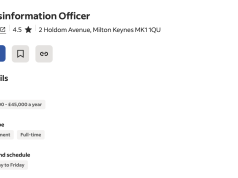In line with arguments by pretty much every other applicant, Heyer argued that the PMTA process was designed in a way to set Triton up for failure. “Because only after the PMTA deadline had passed did the FDA indicate that successful applications would likely need two types of long-term studies—randomized controlled trials (RCTs) and longitudinal cohort studies—to demonstrate “comparative efficacy.” In lay terms, these analyses needed to conclude that products helped smokers quit, not only that they were safer than cigarettes,” revealed Filter.
Similarly, in response to marketing denial order for its products, last October My Vape Order (MVO) petitioned a federal court of appeals for “an emergency motion for a stay pending a review and for expedited consideration” on its products.
MVO called the rejections “arbitrary and capricious,” and this has not been an isolated case exclusive to this brand. The first batch of rejections came in early August 2021, when the FDA announced that it would not even review 4.5 million applications from the same company, JD Nova, on grounds that they did not include an adequate Environmental Assessment.
The FDA dismisses PMTAs without reviewing them
A blog on Competitive Enterprise Institute’s website had highlighted that the amount of applications received by the FDA was way over the 25 applications a year the agency had initially expected. “Perhaps that explains why the FDA now seems intent on coming up with excuses to issue sweeping denials and whittle that number down to a size it can handle,” said the blog.
To the horror (but not surprise) of the industry, other documents have revealed that in fact PMTA reviewers have created a method to get through a backlog of millions of PMTAs, enabling them to quickly dismiss many of them without reviewing their submitted documents.
Read Further: Filter








